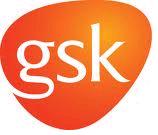GlaxoSmithKline
Court docs detail the lawyers on ex-Glaxo in-house counsel's team, show government scrutiny of the company
 Federal prosecutors have pursued a "massive" investigation of off-label marketing of drugs at GlaxoSmithKline Plc, and the indictment of a former associate general counsel is "just a small piece of it," according to one of her defense attorneys.
Federal prosecutors have pursued a "massive" investigation of off-label marketing of drugs at GlaxoSmithKline Plc, and the indictment of a former associate general counsel is "just a small piece of it," according to one of her defense attorneys.
The attorney, Reid Weingarten of Steptoe & Johnson, said the Glaxo probe includes nearly 200 witnesses and almost 100 grand jury transcripts. And prosecutors said new information is still coming in.
Their remarks were part of a Feb. 18 hearing, a transcript of which just became available Tuesday. The case involves Lauren Stevens, the ex-associate GC, who has been charged with six counts of obstruction of justice and making false statements to federal investigators looking into the off-label marketing of the depression drug Wellbutrin.
"We have received, I think, over 15 million documents from the government," Weingarten added. "The government's investigation of [Glaxo] has included inquiry into many other drugs." Glaxo has not been charged and a company spokesman has declined comment on the case, except to say the company is cooperating with prosecutors.
Weingarten said his concern is that prosecutors will try to taint his client with possible wrongdoing involving other drugs.
"Now, I'm anticipating the government might say that it was part of my client's motive to cover up or try to close down the investigation because the client and [Glaxo] didn't want the FDA investigating all these other drugs. If they have evidence to that effect and they can link it to my client, I suppose that's fair game.
"But what I don't think is fair game is the underlying evidence of off-label promotion that may or may not exist relating to drugs like Paxil and Advair, where there's absolutely no connection whatsoever," he added.
Weingarten also argued that any wrongdoing outside the dates discussed in the indictment, roughly 2000 to 2006, should not be allowed in trial testimony. "If there is off-label promotion in the '90s or off-label promotion in 2008, we don't think that's fair game," he said. His remarks came as the sides discussed a deadline for trading witness lists.
Another issue discussed at length, according to the transcript, was whether the government will use unindicted co-conspirators as witnesses against Stevens. Assistant U.S. attorney Sara Bloom said prosecutors haven't yet decided.
Weingarten accused the government of "hedging." As he argued his side of the issue, Weingarten laid out the most detailed information made public so far about the involvement of Stevens and other lawyers.
"What happened in this case," he said, "is when the FDA sent the [inquiry] letter, Glaxo put together a team and the team included two [presumably in-house] lawyers, in addition to Lauren Stevens who used to work at the FDA ... and there were at least three lawyers from King & Spalding working full time. They were in almost constant communication. I don't think any decision was made ... where all participants didn't agree."
He said the evidence will show that King & Spalding represented the company "in an honorable way; that our client Lauren Stevens was the key contact for King & Spalding; that King & Spalding made an inquiry into the fundamental question posed by FDA [about off-label marketing of Wellbutrin]."
The law firm then interviewed witnesses, Weingarten said, "and actually drafted the letters at issue in this case ... We believe the evidence will show that King & Spalding was shoulder to shoulder" with the company.
Obviously, he added, Stevens will rely on the advice of counsel defense. Representatives from King & Spalding declined to comment for this story.
Then Weingarten began discussing the prosecutor's side of the case.
"The government," he said, "would prefer to take the position that King & Spalding was misled ... [that] they didn't have all the information necessary to make the decisions that they made so, therefore, they were victims."
He said prosecutors "don't want to say that all of these other lawyers who they've not indicted and all these King & Spalding lawyers are unindicted co-conspirators, but I think it will profoundly affect the trial how these witnesses testify — I mean how the government deals with them."
U.S. District judge Roger Titus said he wanted to hear more law on whether the government should identify unindicted co-conspirators. He gave both sides until March 14 to brief the issue. But he was leaning toward the defense's view.
"I do think that I'm sympathetic to the notion that if indeed the government intends to put in evidence of something said by somebody it contends was a co-conspirator and is therefore admissible against this defendant, that they need to identify that — I would like to see it identified."
Titus is hearing the case in Greenbelt, Md., where the FDA's offices are located. The judge also said he would hear pretrial motions on March 17 as well as March 25.
"The reason I'm doing that is because if something hits the fan when it [co-conspirator brief] comes in, you have two different times you're going to be in front of me to complain so I can at least deal with that," he said. Stevens' trial is set to begin April 5.
(Published by Law.com - March 2, 2011)